Keywords: Nuclear
There are more than 200 results, only the first 200 are displayed here.
-
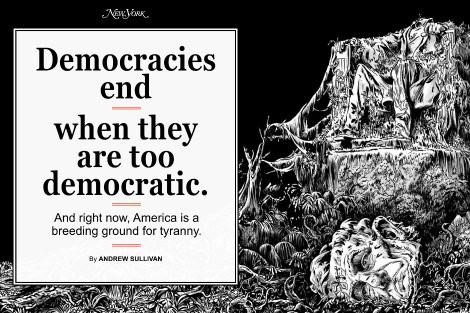
AUSTRALIA
- Jeff Sparrow
- 08 June 2016
9 Comments
Will Clinton defeat Trump? Perhaps - but the polls already show him doing far better than anyone expected. More importantly, an electoral loss might mean the end of Donald Trump but it won't destroy Trumpism. The constituency into which the Donald has tapped will almost certainly grow under the administration of a corporate Democrat like Clinton, even if it manifests in a different form. And what then? How much larger and heftier will the barriers against the popular will have to become?
READ MORE 
-
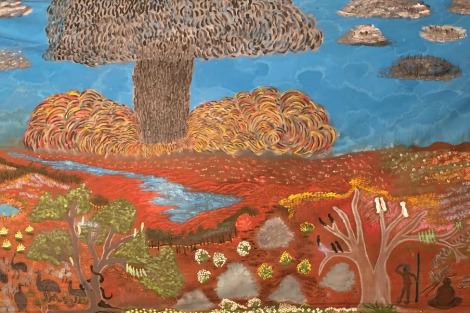
ENVIRONMENT
- Michele Madigan
- 26 May 2016
20 Comments
Just how strictly controlled the process is becomes obvious when it emerges that the task of the 50 member Citizens' Jury will be to produce 'a short independent guide to help every South Australian understand the recommendations raised' by the report. ABC news has dubbed this whole process the Premier's 'public relations exercise', and surely they're not wrong. He is urging all South Australians to remain 'open' about the proposal. But are they, including the Citizens' Jury, allowed to be open to refusal?
READ MORE 
-
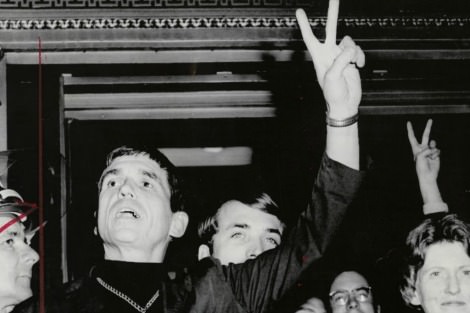
RELIGION
- Andrew Hamilton
- 04 May 2016
18 Comments
By many United States Jesuits including military chaplains, Dan Berrigan was seen as a divisive figure. I also found his actions challenging. I was still to move from my concentration on the goals of military action to focus on what happens to people who make war and have it made on them. Berrigan and others helped me to see the dishonesty in the conduct of the Vietnam war, the cost to Vietnamese civilians and to soldiers on both sides, and the corruption of ethical sensitivity in both societies.
READ MORE 
-
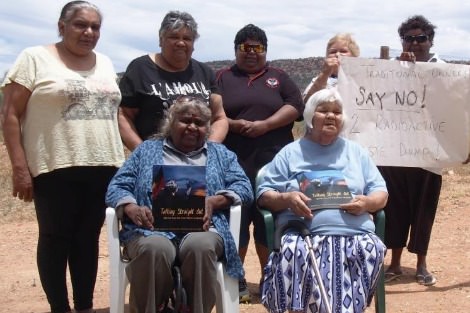
ENVIRONMENT
- Michele Madigan
- 03 May 2016
11 Comments
As fifth century BC Athenian historian and general Thucydides said: 'The strong do what they can, and the weak suffer what they must.' 'I'm sitting here trying to eat my weetbix and keep my thoughts calm,' said Enice Marsh, Traditional Owner for the Flinders Ranges area of SA. Enice and the other Adynamathanha Elders had just received the news that former Liberal Senator Grant Chapman's property Bardioota is 'at the top of the list' to be the site of Australia's national radioactive waste dump.
READ MORE 
-
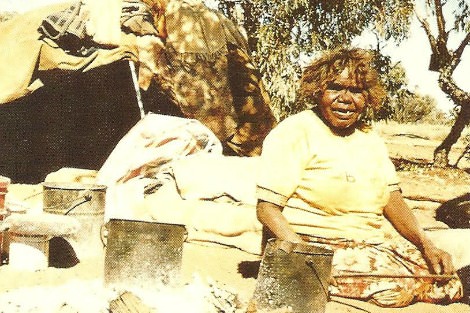
ENVIRONMENT
- Michele Madigan
- 08 April 2016
16 Comments
The passing of Bob Ellis recalls his faithful accompanying of the 1984-1985 royal commission into the British nuclear tests conducted in South Australia in the 1950s and 1960s. His article on the Wallatina hearings described what he named as the commission's 'worst story of all': Edie Milpudie's telling of herself and her family camping, in May 1957, on the Marcoo bomb crater. Re-reading the Ellis article, tears stung my eyes. It's so good when truth is recognised and held up for our freedom.
READ MORE 
-
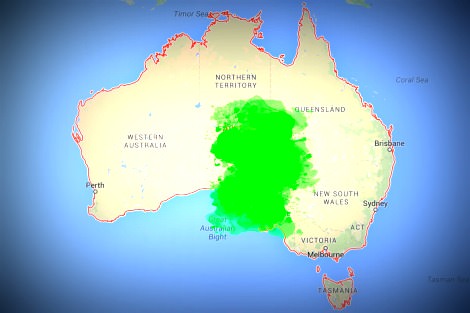
ENVIRONMENT
- Michele Madigan
- 10 February 2016
8 Comments
The South Australia Royal Commission into the nuclear fuel cycle will give its interim report at the Adelaide Town Hall next Monday. It is likely the Commission will recommend that the South Australian Premier's plan to import international high-level radioactive waste proceed, despite obvious risks and clear dangers. It would be a mistake for anyone living outside of South Australia to think that this is just a South Australian problem. Transport and containment risks are hugely significant.
READ MORE 
-
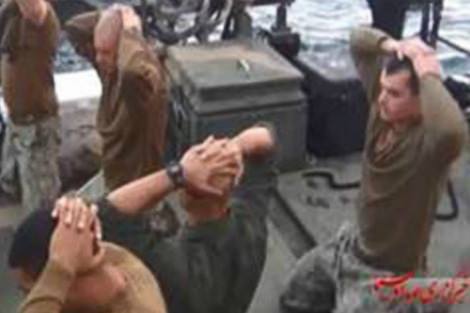
INTERNATIONAL
- Justin Glyn
- 18 January 2016
2 Comments
The US, while backing Saudi Arabia, seems to be increasingly exasperated with how far it has to stick its neck out for its ally. Relationships with Iran, by contrast, have improved recently. The difficulty is that sections within both Iran and Saudi Arabia's governments seem to see a certain short-term interest in tearing the region apart. Australia, which has full diplomatic ties with Iran, a strong trade partnership with Saudi Arabia, and the ear of the US, can play an important diplomatic role.
READ MORE 
-
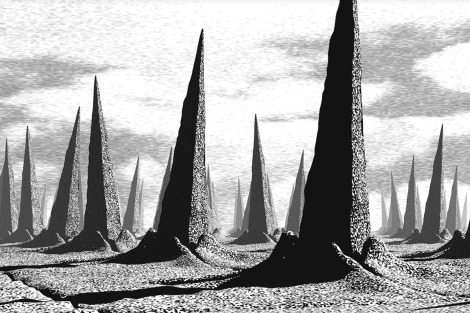
ENVIRONMENT
- Michele Madigan
- 11 December 2015
13 Comments
The state of Nevada continues to show its resolve by its longterm refusal to host a national nuclear waste dump. Such is their success that President Barack Obama has continued to back their opposition. It would certainly be beyond their comprehension that any community, any government, would volunteer to take other countries' nuclear waste, which remains radioactive for thousands of years. Yet in Australia, this is what nuclear proponents, the SA premier, and now the prime minister are backing.
READ MORE 
-

RELIGION
- Frank Brennan
- 03 December 2015
The consideration of medico-legal problems in the public square of a pluralistic democratic society keeping pace with profound technological change is often marked by simplistic assertions, precluding considerations of comprehensive world views, whether religious or philosophical. It is now commonplace for doctors to be told to leave their consciences at the door, as their patients are consumers and they are suppliers and of course the market decides. Debates about law and policy are often resolved with simplistic assertions about individual rights and autonomy, with little consideration for the public interest, the common good, and the doctor-patient relationship. Even conscience is said to be a matter for contracting out. This evening I ask whether there are more compelling ways to resolve medico-legal dilemmas, while conceding a limited role for law in determining the range of acceptable answers.
READ MORE
-
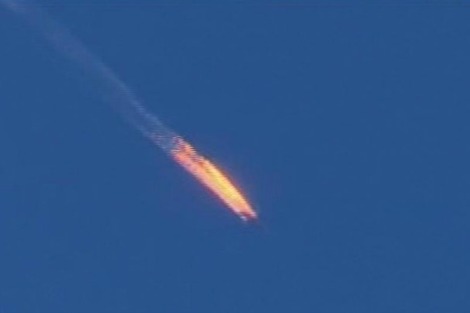
INTERNATIONAL
- Justin Glyn
- 26 November 2015
6 Comments
The downing of a Russian Sukhoi-24 bomber by Turkey reminds us of the risks which attend military intervention. There are, however, a number of additional complicating factors which promise to make the Syrian war even more dangerous and bloody for all sides. The situation could escalate dangerously. If this kind of event is not to become much more common, potentially leading to a much wider war, genuine peace talks with a lot more honesty on each side need to be a priority.
READ MORE 
-
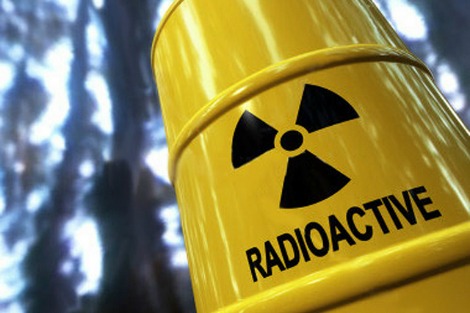
ENVIRONMENT
- Michele Madigan
- 18 November 2015
14 Comments
It's no surprise that three of the federal government's shortlisted sites for the proposed national radioactive waste facility are in South Australia, the 'expendable state'. And it's disturbing to find that the owner of at least one of the sites has been misinformed, believing 'It's basically only a medical waste facility.' In fact the farmer and Indigenous opponents of the sites are right to be concerned. The intermediate level waste housed at such a facility will be hazardous for thousands of years.
READ MORE 
-
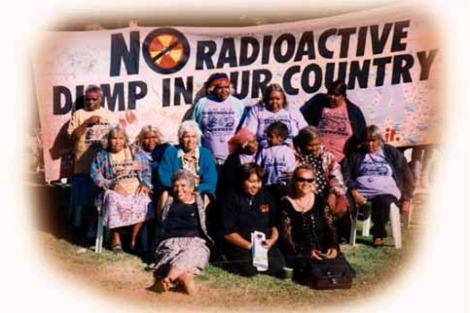
AUSTRALIA
- Michele Madigan
- 10 November 2015
18 Comments
The budget for the 2015 Indigenous Advancement Strategy funded South Australian Aboriginal communities less than ten per cent of what they required, and some received nothing at all. So with the prospect mooted of the state hosting a depository for the world's high-level radioactive waste, it's a very relevant concern that some communities might be enticed to offer themselves as a site. This is not only a justice issue for those communities; the environmental implications are far-reaching.
READ MORE 